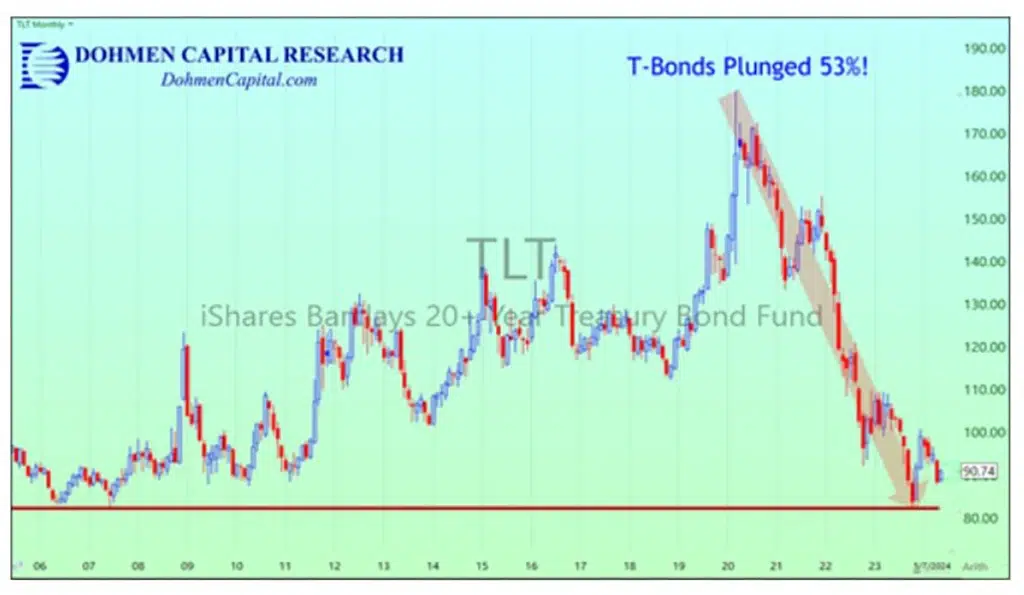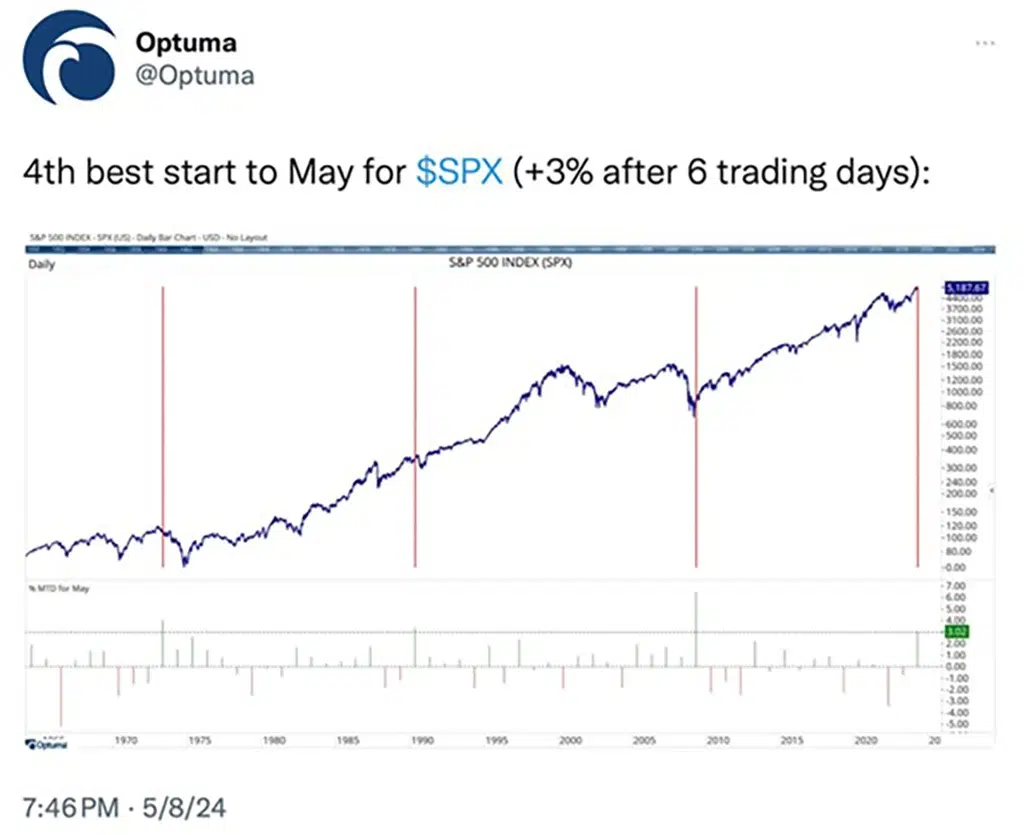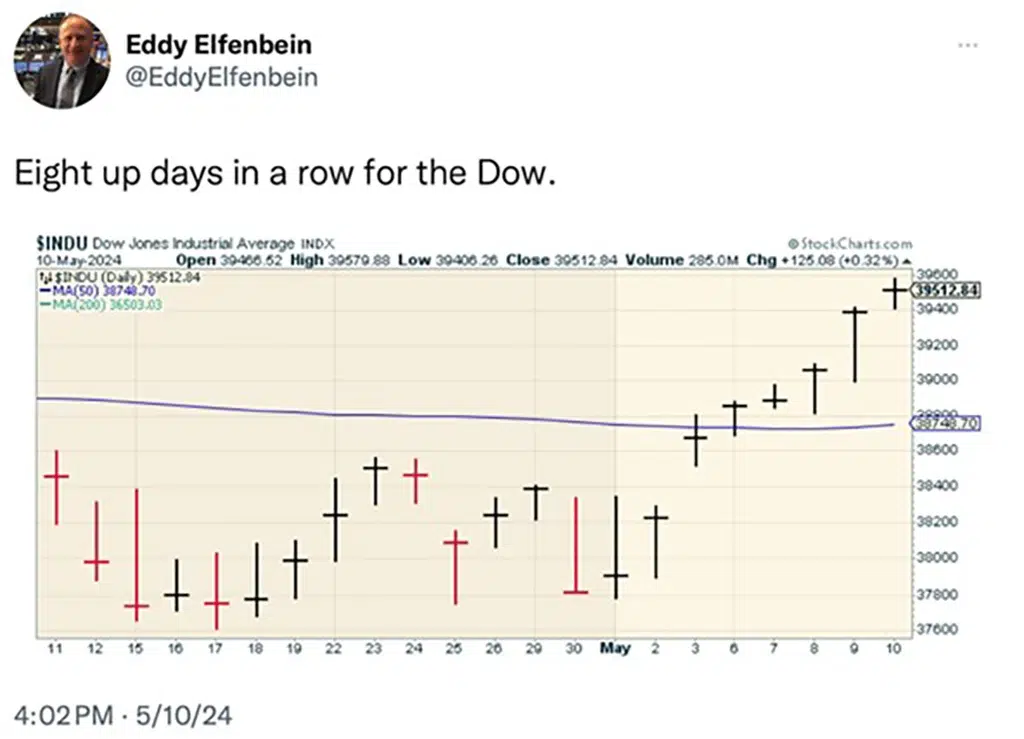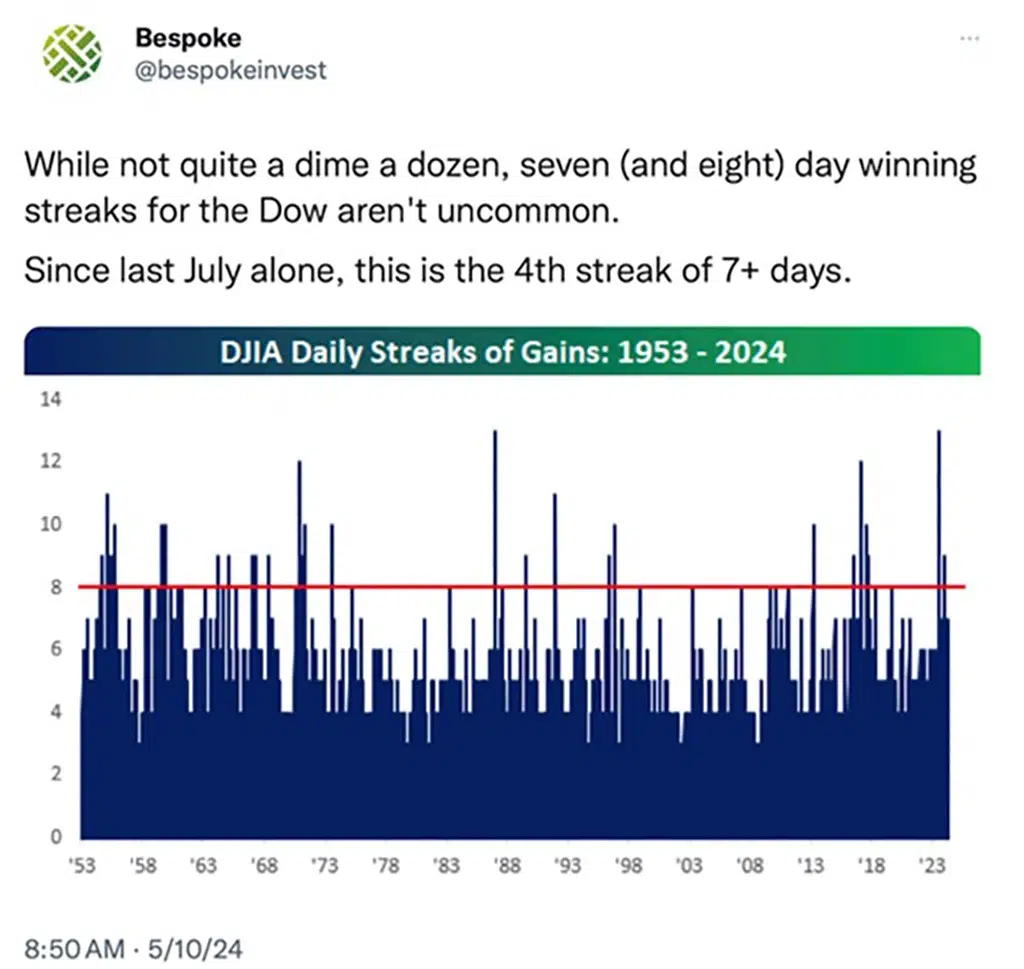Weekly Market Outlook
By Donn Goodman
May 15, 2023
Welcome readers. Glad to have you for a few minutes. Let’s jump right in.
I could write about so many topics this week as there are more than a handful of macro-economic and market newsworthy items. But given the amount of time, space and energy that the media has been giving to whether or not the Fed will lower interest rates I thought I would weigh in here.
There are MANY reasons FOR lowering rates and MANY reasons against. Whether you are a hawk (fiscal conservative) or a dove (looser monetary policy) you have retreated into your corners.
The very essence of hours and hours of dialogue about this is a) is the economy slowing? b) has inflation retreated? and c) can we get rates down to help certain sectors of the economy improve (mortgages, credit card debt and financing of our own debt)?
Most sophisticated analysts keep their views centered on the spread between the Fed overnight lending rate (5.25%-5.50%) and the rate of inflation, which most believe is in a downward trajectory. Their belief is that the spread between the Fed’s rate, the 10-year (4.5%) and a inflation of 2.8%-3.2% is too wide.
Everyone says there is room to lower rates. Or don’t wait too long.
One piece of evidence that some analysts use is the angle and trajectory of the 20-year bond as represented by the ETF TLT (which MarketGauge has a successful track record trading. If you would like more information reach out to Rob Quinn at Rob@MarketGauge.com).

I worked in asset management through the 1994 fixed income bear market. Most people in the business said afterwards that they hoped they did not experience that pain again for a long time. They were correct, they did not as the US Government instilled quantitative easing and we saw rates decline to almost zero.
Then inflation kicked in post Covid, the Fed began raising rates dramatically starting in 2022 and another bad fixed income market came back. It turned out 1994 was nothing like what we have gone through from 2022 to the current period.
The majority of working Americans have a big exposure to the fixed income markets through their IRAs, 401k plans, their company’s retirement plans and/or Public retirement fund’s asset allocations. It may surprise you to see that from January 2022 to May 10, 2024, the areas of the fixed income markets (total return without income) have produced these returns:

Last week’s Market Outlook included a chart of the April 2024 bond market and how badly the fixed income market treated bond investors. If you haven’t yet read last week’s issue, you can click here to go to that article.
Let me repeat that, most Americans have quite a bit of exposure to an asset class that has produced a negative return in the past 30 months. Zero, nada, zilch return on a big part of their asset allocation.
It is for the reasons above, along with financing our debt ($35 trillion), which has produced an insurmountable deficit that costs the US Government over $1 trillion dollars a year. Now more than our defense budget.
This is one of the important reasons people are urging the Fed to lower rates sooner rather than later. Additionally, numerous experts are screaming that if the Fed waits too long, they are going to break the system and that regional banks, currently holding underwater bond securities, are going to begin to go out of business. Or, that the Fed will throw us into a recession.
The reasons NOT TO LOWER.
I could easily spend many pages giving you the reasons why the Fed should NOT lower rates anytime soon. Most of you probably won’t want to hear that argument. But if you are a frequent reader here, or follow Mish, you know that we have both been strongly suggesting that inflation was sticky and would trend back up before heading down.
That is exactly what has occurred.
But let’s explore the other reasons besides higher inflation that might eventually motivate the Fed to HIKE, not lower. (Jerome Powell recently said the Fed does not see any reason to raise rates further, which the market took positively and led to the positive market bias recently):
- We have full employment (caused by a shortage of qualified workers) and are continuing to add jobs each month.
- We have a positive GDP
- The Government has put its foot on the accelerator and is creating much of the inflation by spending over $6 trillion, way more than ever before. They know that this is inflationary but may be the only way to enable the financing of the US Treasury’s record deficit. They have no other alternative.
- Personal consumption is still running high and indicates that we may need higher, not lower, interest rates.
Don't Get The Weekly Newsletter? Join Here:
In other words, we could easily give you the validation that the Fed should be hiking rates right now and not lowering them. However, given this is an election year, they are most likely to lower rates and do that as soon as this fall. But if they are truly “data dependent” they should maintain a neutral reading and hold off. HIGHER FOR LONGER.
Positive market action started in late April.
Contrary to many of the “Seasonality Gurus” who claim you should “Sell in May and Stay Away” from the markets, the S&P started May off very strong. See chart below:

And the Dow Jones Industrial Average (DJIA) has had an impressive winning streak these past two weeks. See chart below:


This can’t be a bear market.
After a 5% pullback, the markets turned around on cue in the latter part of April. You may recall the charts we included in the Market Outlook from April 28th that showed the market pattern during a Presidential election year. This current turnaround seems to be playing out well even considering higher interest rates and slowing growth. If you would like to go back and review the Market Outlook from April 28th you can click here.
The S&P closed Friday near its all-time high, established a few weeks ago. This price behavior, along with the NYSE Advance-Decline establishing a new high, conveys a positive upward bias, which doesn’t occur in a bear market.
Use the link below to continue reading about:
- Market rotation driving the market higher
- A record-breaking streak without a daily decline of 2%
- Trends in investor sentiment
- The unusual leadership by Utilities and Consumer Staples
- The Big View bullets
- Keith’s weekly market analysis video













